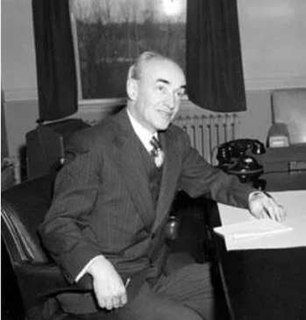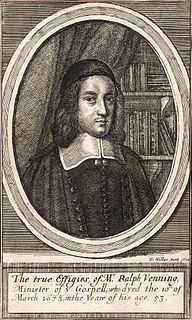A Quote by Percy Bysshe Shelley
Poetry is a mirror which makes beautiful that which is distorted.
Related Quotes
If you examine the highest poetry in the light of common sense, you can only say that it is rubbish; and in actual fact you cannot so examine it at all, because there is something in poetry which is not in the words themselves, which is not in the images suggested by the words 'O windy star blown sideways up the sky!' True poetry is itself a magic spell which is a key to the ineffable.
Sometimes he would advise me to read poetry, and would send me in his letters quantities of verses and whole poems, which he wrote from memory. 'Read poetry,' he wrote: 'poetry makes men better.' How often, in my later life, I realized the truth of this remark of his! Read poetry: it makes men better.
Good character is that quality which makes one dependable whether being watched or not, which makes one truthful when it is to one's advantage to be a little less than truthful, which makes one courageous when faced with great obstacles and which endows one with the firmness of' wise self-discipline.
It's very hard to look in a mirror and see anything which resembles what one feels one's self to be. I think that discomfort, that dislocation, disintegration - that raw lack of feeling whole - that dysmorphia - is a very good place, in this moment, to hunt for the kind of experience which really requires the means of poetry to be grasped or felt.
I have read of a glass kept in an idol temple in Smyrna that would make beautiful things appear deformed, and deformed things appear beautiful; carnal sense is such a glass to wicked men, it makes heavenly things which are beautiful to appear deformed, and earthly things which are deformed to appear beautiful.
The voice is certainly important and you can hear if it's beautiful or not, it's the gods who decide; it's more a question of what you do with the voice, which is the mysterious element. It's the personality behind the voice which makes the artist. The voice is a gift of God, but if you're not able to use this gift, what's left? Nothing but a beautiful voice, without nuance or color.
Let Go of Your Worries Let go of your worries and be completely clear-hearted, like the face of a mirror that contains no images. If you want a clear mirror, behold yourself and see the shameless truth, which the mirror reflects. If metal can be polished to a mirror-like finish, what polishing might the mirror of the heart require? Between the mirror and the heart is this single difference: the heart conceals secrets, while the mirror does not.





































